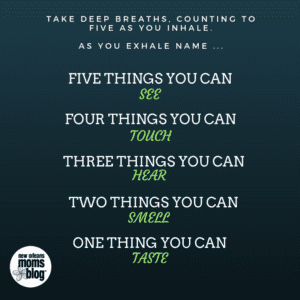“I don’t know what to do. I think she had a panic attack this morning!”
Because I’ve been so open about our journey, I frequently get texts like this or similar. A parent, scared or shocked, messages me in distress over an unusual outburst or a pattern of meltdowns that seemingly came from nowhere.
I’m not a therapist. I have only my limited experience to pull from. But I’ve muddled my way through enough rough moments. I’ve been there. More times than I can count. In our introduction, I admitted to my spectacular failure when my daughter went through her first anxiety attack. Those moments, when you can’t reach them and logic goes out the window are scary and difficult.
For me. I had no idea what they felt like for her. So I went to the source, my darling goofball, to find out more. Together we went through the memory of a time “big feelings” got the best of her. What follows is an eight-year old’s perspective (with a momma’s notes).
I want to stress again that I am neither a therapist nor a doctor. By all means, and anytime your “mommy sense” is tingling, consult a professional if you feel your child is experiencing emotional or physical symptoms that concern you.
What did it feel like to you?
Charley Says: “I get really sick to my stomach, then I think I’m going to throw up. Then I get upset because I don’t want to throw up. But that makes me cry, which makes my nose get all stuffy, then I cough and it makes me think I’m going to throw up and it starts all over! Also my heart hurts like someone is squeezing it really tight and not in a good way.”
Mom Notes: Though it’s a surprising sign of anxiety, nausea is telltale in our world. If your child is physically manifesting anxiety, check out the amazing book Hey Warrior, which beautifully explains and reframes, in a language he or she can understand, what anxiety does to your body and why.
What did I do that helped you?
Charley Says: “You make Rosie do funny tricks or we play the license plate game.”
Mom Notes: Rosie is her favorite stuffy and a constant source of comfort, so Rosie is always nearby. For a while, Charley would get anxious when we were on our way to a party or activity, anticipating what might happen. The license plate game is simple: grab three letters off the license plate of any passing car and form funny phrases using those letters. In both cases, the key is distraction. Making your child laugh in an easy way (from experience I do not recommend tickling) or giving them something else to focus on, like a simple game, takes the edge off the fear at the front of their mind and can often loosen its hold.
What did I do that didn’t help?
Charley Says: “When you get mad or tell me to calm down I feel worse. And I don’t want my brother around!”
Mom Notes: I get it. You are already late and your kid has suddenly developed an irrational fear that the seat belt will strangle her. Now, instead of being on your way, you are trying to negotiate with a hyper nelly to just get in the car.
Here’s the truth: once it hits, no amount of rationale will work. And if your child is, like mine, a people pleaser, then your frustration will only worsen the situation. On top of being afraid, she is now disappointing you. So take a deep breath and be the second chicken (The Opposite of Worry is my favorite book, hands down).
When a child feels “big feelings” they need validation, even if those feelings seem silly. No matter how many times I explained to Charley that zombies were not going to crawl in through her window, it felt real to her. But you can acknowledge a child’s feelings without giving them validity. Simple phrases like “I bet that feels very scary” or “It’s going to be OK” said calmly have a lot of power.
What I’ve found to be powerless? “It’s ok”. “Come ON.” “That’s ridiculous.” As the expression goes, never in the history of calming down has anyone ever calmed down by being told to calm down. Also, I’ve never had a successful negotiation with an upset kid. If you have … please share your magic with me.
The time for productive discussion is when the situation has ended and your child is recovered. Together, you can find ways to face or fight the fear, regardless of whether or not it’s a rational one. But at the moment? Be their anchor until the storm passes.
As for her brother being around … siblings push buttons. It’s what they do.
What can you do to help yourself?
Charley Says: “Five senses!”
Mom Says: I’ve shared this before, and here it is again. This one is easy and powerful:

We practice it when she’s calm so that, when she’s not, it’s easy to access. No matter how badly I’ve wanted to help her or fix a problem, a major emotional battle is best fought from within.
Man, those times are hard on a family! But you are not alone, Mamma. In part three of this series, we will detail some ways to prevent the full attack before it happens, when possible. The tools provided here, and those I will share next, have helped our family transition from being reactive to becoming proactive by building emotional strength and resilience.
















